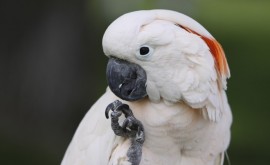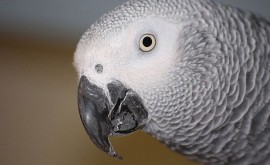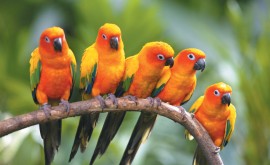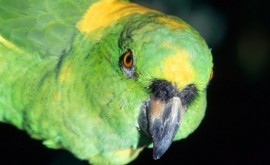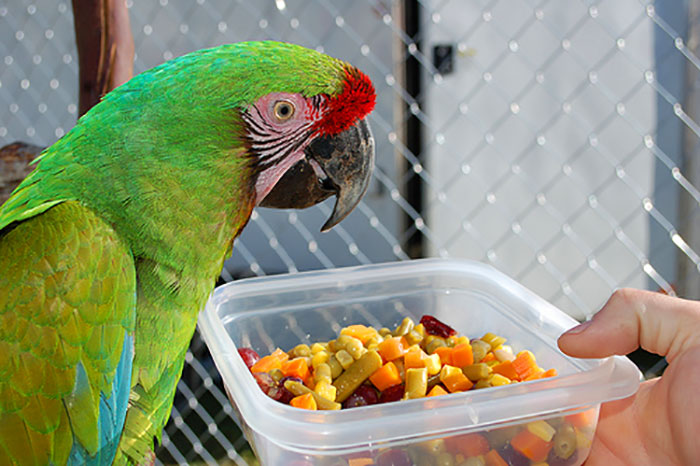 A misconception about parrots is that they are picky eaters, having just one or two food items of preference. In truth, many birds enjoy a wide variety of foods and of those that do not, it is often because they have never been introduced to different things. Following are four specific mistakes that sabotage a bird’s appetite along with tips on how to avoid them.
A misconception about parrots is that they are picky eaters, having just one or two food items of preference. In truth, many birds enjoy a wide variety of foods and of those that do not, it is often because they have never been introduced to different things. Following are four specific mistakes that sabotage a bird’s appetite along with tips on how to avoid them.
Unwanted Leftovers
Some animals to include dogs have no problem eating leftover food that most people toss in the trash but parrots are quite different. Not only can leftovers make birds sick, they do not enjoy the texture or flavor. For instance, birds love crunchy fruits and vegetables so giving them something mushy will not do.
Offering Food in the Wrong Way
Another mistake is not giving a parrot healthy food due to lack of interest. Even if a bird does not eat broccoli, green beans, carrots, watermelon, and so on, at least one type of fresh healthy food should be offered daily. To make the food more enticing, owners can try placing food items in different locations. Sometimes, a bird will try new foods right away while more often it can takes weeks, if not months for the food to be accepted.
Feeding the Wrong Food at the Right Time
A bird’s appetite for healthy and nutritional food can be spoiled if it is presented as a treat opposed to a meal. Birds are typically most hungry in the morning so it is important to offer healthy foods at this time of day rather than later in the afternoon.
Create a Quiet Environment
Parrots are commonly unnerved by noise such as a vacuum cleaner, barking dog, kids who are running in and out, and so on. Loud noise can have a direct impact on a bird’s appetite so the goal is to create a quiet environment during feeding periods. In the wild, parrots forage for food in trees and on the ground alongside flock members. When spooked or stressed, they fly away whereas in a home, there is no place to go. Many experts suggest playing soft music or a nature video during feeding times to help keep the bird calm.
Smart Feeding
Rather than overfill a feeding dish, it is better to put just enough food in the parrot’s bowl for one feeding. This will make the food more attractive to the bird, prevent spoilage, and ultimately save money on wasted food, a table spoon and a half for most large parrots.
Usually, pellets, seeds, and other commercially sold products can stay in a bird’s bowl throughout the day but cracked seeds can stay in the dish, making it appear as if the bird has plenty to eat when in fact, there is nothing but empty shells. Therefore, it is important to check the bowl several times a day.
On a final note, while there is good nutrition in store-bought products, they do not provide everything that parrots need. In addition to pellets, seeds, and exotic nuts these birds need lots of fresh fruits and vegetables, as well as favorite foods discovered like scrambled eggs and pasta noodles.

